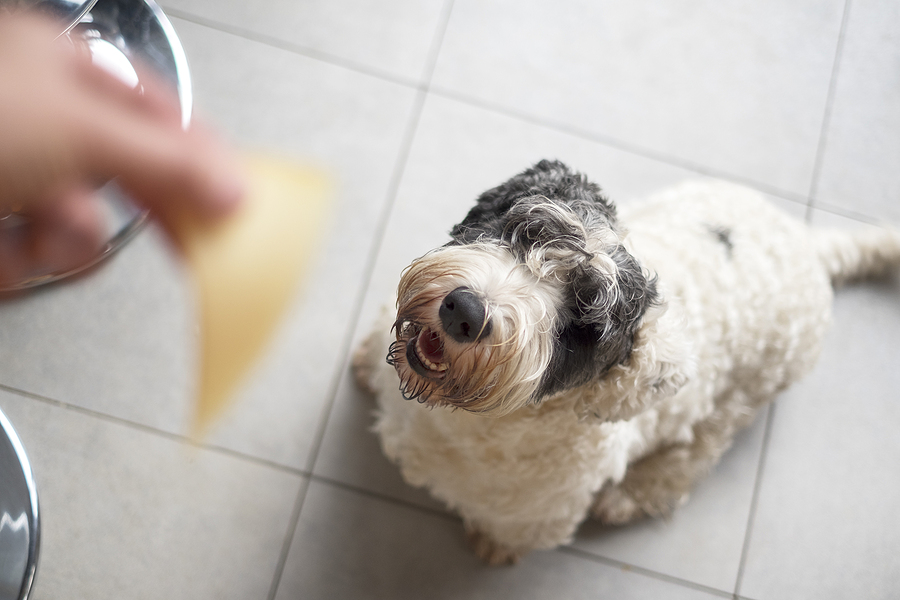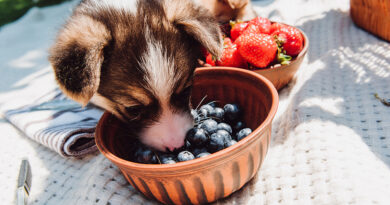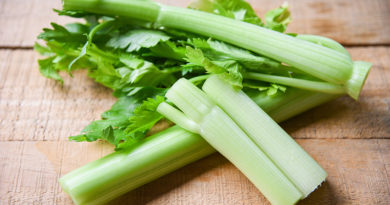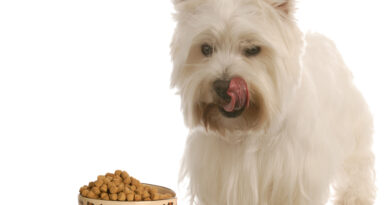Can Dogs Eat Cheese?
Featured image by © bigstockphoto.com / Volff
Can Dogs Eat Cheese?
Most of us already know an answer to this one. Dogs absolutely love cheese! Cheese is not toxic to dogs. Your pets can enjoy cheese as long as the portions remain within a healthy dietary balance. Still, please consider the factors you should take into account before deciding to feed your dog cheese regularly.
Below, we discuss the benefits of cheese for dogs, as well as the potential dangers and risks. We’ve also gathered some sound advice on how to feed cheese to your dog. Let’s get started!
Benefits of Cheese for Dogs
Cheese is extremely rich in protein, essential fatty acids, calcium, and vitamins A and B. All of those nutrients are essential to dogs as well as to humans.
The delicious taste and smell obviously appeal to dogs as well. When was the last time you saw a dog acting indifferent when offered a cheese treat? Pure cheese is entirely non-toxic and safe for dogs to consume.
The market offers a variety of cheese-based dog treats. Cheese is a favorite treat often used by dog trainers to aid in the process of training a dog.
Cheese can also be one of the best ways to “smuggle” medical pills for dogs that either refuse to take pills or have a hard time taking medication directly. Wrap up a pill in cheese—and it will disappear into your dog’s mouth in no time.
Bear in mind that not all cheeses are the same. Nutritional value and quality vary significantly depending on the type of milk used, the production process, or any added ingredients. Generally, a low-fat cheese without additional components is a safe bet for most dogs.

Potential Hazards to Your Dog
Even though dogs love cheese, it does not come without its risk and potential hazards.
First, some types of cheese are very high in fat, which is not ideal for dogs. High-fat foods can significantly contribute to obesity and diabetes in your dog, possibly leading to pancreatitis as well. Such overindulgence may lead to a death sentence for most dogs.
Second, some gourmet cheeses contain added elements such as herbs, spices, hot peppers, fruits, and vegetables. Although this does not necessarily spell danger, the hidden ingredients in these recipes may prove toxic to dogs. Choosing a plain, basic cheese for your dog is a safe bet.
Third, be aware of your dog’s possible digestive reaction. Not every dog can metabolize cheese, despite loving it. Lactose intolerance exists in dogs just as it does in humans. Many dogs react to cheese with abdominal cramping, gas, diarrhea, and other signs of gastric discomfort. If this happens to your dog, stop feeding your dog cheese until you have consulted your veterinarian.
How to Feed Cheese to Your Dog
Here are some general tips when it comes to feeding cheese to your dog:
- Keep it plain and simple. Stick to the plain cheeses without added herbs or spices. While cheese is non-toxic to dogs, some additives might not be. Diarrhea, vomiting, gut irritation, or even food poisoning are scenarios we know you would like to avoid.
- Avoid the fat. Choose low-fat cheeses such as mozzarella, cottage cheese, or soft goat cheese. Moderately low-fat cheeses will help minimize the risk of canine weight gain or obesity.
- Keep food variety in balance. Ensure that your dog’s diet is balanced and nutritious. Fit the nutritional value of cheese into the meal plan for your dog, and always measure out how much cheese you are feeding your companion.
- Introduce it gradually. If you have fed cheese to your dogs, start slowly to allow their digestive systems to adjust to its richness, then be sure to observe and carefully track how your dog reacts to cheese.




